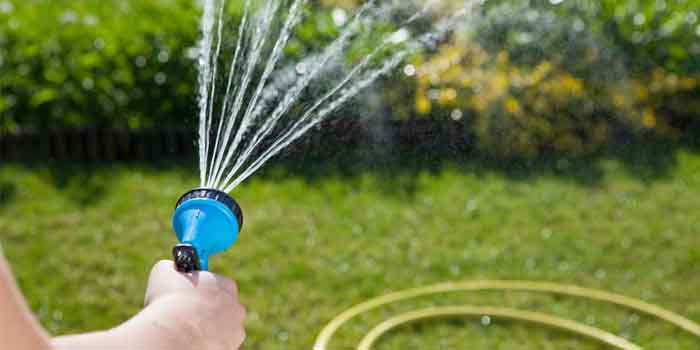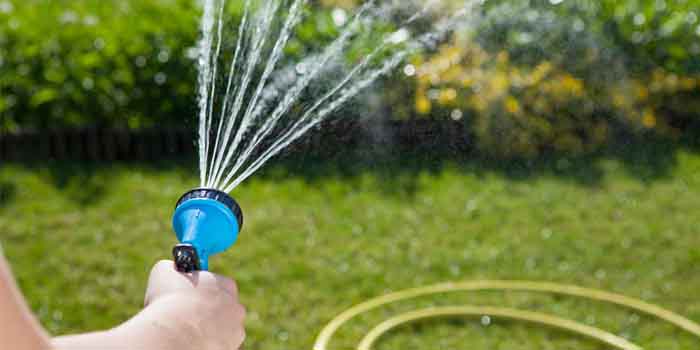
Reduce Water Usage in Hotels: Tech Solutions for Sustainability
Share
In an era where sustainability is not just a buzzword but a necessity, the hospitality industry is under increasing pressure to adopt eco-friendly practices. One of the critical areas where hotels can make a significant impact is by reducing water usage. With advancements in technology, there are now more opportunities than ever for hotels to minimize their water consumption without compromising on guest comfort. This article explores various tech-driven solutions to reduce water usage in hotels, focusing on innovations that tech professionals and enthusiasts will find intriguing.

The Importance of Reducing Water Usage in Hotels
Water conservation is a pressing issue globally, and hotels, with their high water demands, are pivotal points for action. According to a report by the U.S. Environmental Protection Agency, hotels and other lodging facilities account for about 15% of the total water use in the commercial and institutional sector. This significant consumption makes it crucial for hotels to adopt water-saving measures. Implementing such measures not only helps in conserving a vital resource but also reduces operational costs and enhances the hotels brand image as a sustainable entity.
Modern technology offers a myriad of solutions for hotels aiming to reduce water usage. By leveraging the Internet of Things (IoT), smart sensors, and data analytics, hotels can monitor and optimize their water usage efficiently. These technologies not only enable hotels to detect and fix leaks promptly but also allow them to optimize water use in real-time, ensuring maximum efficiency.
Tech Innovations for Water Conservation in Hotels
Smart Toilets and Fixtures
One of the most effective ways hotels can conserve water is by installing smart toilets and fixtures. These devices are designed to use less water while maintaining performance. Smart toilets, for instance, often come with dual-flush systems, allowing users to select a lower water volume for liquid waste. Moreover, smart fixtures equipped with motion sensors ensure that water only flows when needed, significantly reducing wastage. For more insights on how smart toilets contribute to water conservation, you can visit The Role of Smart Toilets in Water Conservation.
IoT-Enabled Water Management Systems
IoT technology has revolutionized the way water usage is managed in hotels. By connecting all water outlets and appliances to a centralized system, hotels can gain real-time insights into their water consumption patterns. These systems can alert management to any anomalies, such as leaks or excessive usage, allowing for immediate corrective action. Moreover, IoT-enabled systems can provide data analytics that help in formulating effective water conservation strategies. To understand the broader impact of IoT on water conservation, consider exploring Urban Water Conservation Techniques.
Automated Irrigation Systems
Landscaping is another area where hotels often consume significant amounts of water. By implementing automated irrigation systems, hotels can ensure optimal watering schedules based on weather conditions, soil moisture levels, and plant types. These systems, often controlled via smart apps, enable precise water delivery, reducing wastage and ensuring healthy landscapes. For more tips on water conservation, check out 20 Ways to Save Water.
Water Recycling and Reuse Technologies
Another innovative approach to reducing water usage in hotels is through water recycling and reuse systems. These systems treat and repurpose greywater (wastewater from sinks, showers, and laundry) for non-potable applications such as irrigation or toilet flushing. By reusing water within the hotel premises, hotels can drastically cut down their freshwater consumption. Delve deeper into this topic by visiting Water Reuse and Recycling.
The Role of Guest Engagement in Water Conservation
While technology plays a crucial role in reducing water usage, guest participation is equally important. Hotels can engage guests through educational initiatives, encouraging them to participate in the hotel's sustainability efforts. Simple measures like reusing towels, taking shorter showers, and reporting leaks can collectively make a significant impact. Additionally, hotels can offer incentives or loyalty points to guests who actively participate in water conservation efforts.
Interactive Guest Apps
To facilitate guest engagement, hotels can develop interactive apps that provide real-time data on water usage, tips for conservation, and rewards for sustainable behavior. By gamifying water conservation, guests are more likely to participate actively. These apps can also provide guests with personalized recommendations to reduce their water footprint during their stay.
Conclusion
Reducing water usage in hotels is not just an environmental imperative but also a strategic business move. With the right blend of technology and guest involvement, hotels can achieve substantial water savings while enhancing guest experiences. As tech professionals and enthusiasts, exploring these innovations and their applications in the hospitality industry can lead to groundbreaking advancements in sustainability.
For additional resources on starting your water-saving journey, visit EPA's WaterSense initiative.

FAQ
How can hotels measure their water usage effectively?
Hotels can utilize IoT-enabled water management systems that provide real-time monitoring and data analytics to measure and optimize water usage efficiently.
Are there government incentives for hotels to reduce water usage?
Yes, many governments offer incentives and rebates for businesses, including hotels, that implement water-saving technologies and practices. It's advisable to check with local authorities for available programs.
What role do guests play in hotel water conservation?
Guests play a crucial role by adopting sustainable practices such as reusing towels, reporting leaks, and using water-saving fixtures, significantly contributing to the hotel's conservation efforts.
